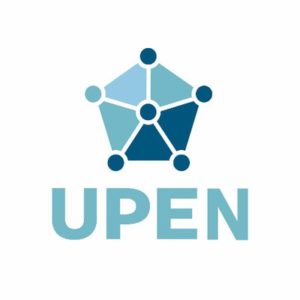UPEN – Universities Policy Engagement Network
 As members of UPEN, St Andrews can access support in engaging with policymakers. UPEN offers a dedicated contact point for policymakers, and a collective response to requests for evidence. It organises knowledge exchange events with government, parliament, devolved bodies, and identifies mechanisms to take forward specific projects. UPEN is also developing best practice amongst universities in policy engagement activities, and will act as a champion for this relatively new role within universities. Some additional benefits of membership are:
As members of UPEN, St Andrews can access support in engaging with policymakers. UPEN offers a dedicated contact point for policymakers, and a collective response to requests for evidence. It organises knowledge exchange events with government, parliament, devolved bodies, and identifies mechanisms to take forward specific projects. UPEN is also developing best practice amongst universities in policy engagement activities, and will act as a champion for this relatively new role within universities. Some additional benefits of membership are:
- Attendance to UPEN knowledge exchange events (most events are expected to be free)
- Collated calls for evidence to UK parliament and devolved nations governments
- Searches for calls for science to find where humanities can make a contribution
- Help to write up evidence submissions
- Help to land parliamentary internships
The Impact Team is working with School and Departments to provide policy dissemination and dissemination of policy opportunities but if you would like to be added directly to our UPEN mailing list, please contact [email protected].
SPRE – Scottish Policy & Research Exchange
 Officials and Scholars Working Together
Officials and Scholars Working Together
The Scottish Policy and Research Exchange supports researchers and officials as they seek smart solutions to policy challenges. It is a network of professionals working together to deliver evidence-informed policy in practice.
SPICe– Scottish Parliament Information Centre
SPICe has been working together with colleagues from the House of Commons, the Welsh Assembly and the Northern Ireland Assembly to produce a ‘Research Impact in Legislatures’ briefing that describes the work of legislatures and the ways that research is used.
The Scottish Parliament Information Centre (SPICe) have published the SPICe style and writing guide. The guide includes:
- Plain language writing techniques and tips
- Dealing with jargon and business terms
- Deadling with parliamentary terminology
The guide is available on the Scottish Parliament website.
UK Parliament engagement
Get involved and have Research impact at the UK Parliament.
Further information in ways to engage with the UK Parliament are available on their webpages and via Twitter.
You don’t need to have all the answers. Academic contributions which address any aspects of an inquiry you feel qualified to comment on are very welcome.
Get involved and have Research Impact at the UK Parliament.
The Parliamentary Office of Science and Technology (POST) runs several fellowship schemes with Research Councils, learned societies and charities. Through these schemes, academics are sponsored to spend time working in Parliament. Some fellowships are also open to post-doctoral researchers in academia and industry.
Types of fellowships available with POST
UK Parliament research services
UK Government
Areas of research interest (ARI) give details about the main research questions facing government departments.
ARI aim to improve how government departments:
- align scientific and research evidence from academia with policy development and decision-making
- access a wide range of suppliers
- engage with researchers
- access stronger policy evidence bases at better value for money
- share research commissions
If you are interested in working with a department on a research question, please use the contact details within the relevant ARI.
Planning policy engagement
Engagement with policy is best considered before a project even begins, in the planning process, through discussions with stakeholders. However, even at the end of a project, you can still plan effective ways of bringing your message to people who can make a difference.
Policy objectives
- What message are you communicating and what is your evidence?
- What are the implications for policy change?
Hint: Be concise, understandable and relevant. Prepare a briefing paper with summary and distilled information so misrepresentation is minimized, i.e. try to provide an end product.
Audience
- Who in government or amongst opinion leaders can influence the relevant policies, i.e. who are you trying to influence?
- Where are the opportunities for delivering your message?
Hint: Work out the level of pitch required and make the first contact count.
Promotion
- How can the information best be delivered?
- When is the best time to present it?
Hint: Build on strengths and don’t over cite. Applied and interdisciplinary research are important when addressing policy issues.
Policy engagement tools, guides and training
- Tools for Policy Impact: A Handbook for Researchers
- Tools for Policy Impact: A Handbook for Researchers (Overseas Development Institute)
- Helping researchers become policy entrepreneurs: How to develop engagement strategies for evidence-based policy-making (Overseas Development Institute)
- Communicating research for evidence-based policymaking: A practical guide for researchers in socio-economic sciences and humanities (European Commission)
- Guide to working with policy makers (The National Co-ordinating Centre for Public Engagement)
- Methods for Influencing legislators or other policy makers (Virtual Knowledge Centre to End Violence Against Women and Girls, UN Women)
- Government Knowledge and Information Management Profession (UK Government)
Getting involved with policy
- ‘Upstream engagement’ is a type of top-down engagement with the public, facilitated by academics on behalf of government and the industries involved in the development of new technologies. It involves deliberative methods such as focus groups, citizen juries and other forums for in-depth discussions concerning new technologies such as nanotechnology, synthetic biology and climate geoengineering. Further information: Corporate Watch, National Co-ordinating Centre for Public Engagement
- The Industry & Parliament Trust is an independent, non-lobbying and non-partisan charity that provides unique platforms of engagement between Parliament and UK business.
- The Westminster Higher Education Forum aims to provide the premier environment for policymakers in Parliament, Whitehall and government agencies to engage with key stakeholders in timely discussion on higher education policy. These include university and college leaders; academics and other higher education professionals; representatives from students’ unions; businesses and their advisors; interest groups and the voluntary sector; along with commentators and members of the reporting press.
- Parliamentary Outreach spreads awareness of the work, processes and relevance of the institution of Parliament, encouraging greater engagement between the public and the House of Commons and House of Lords. Additional links: UK Parliament, Parliamentary Committees, UK Government, and Non-Departmental Public Bodies (quangos)
- Scottish Parliament. Responding to Scottish government current consultations or committee business is another way that you can get involved. Additional links: Scottish Parliament, Committees, and Scottish Government
- Scotland’s Future Forum was created by the Scottish Parliament to help its Members, along with policy makers, businesses, academics, and the wider community of Scotland, look beyond immediate horizons, to some of the challenges and opportunities we will face in the future. It is non-party political and is setting up placements for academics to sit in Parliament and Members of Parliament to engage with universities. SFF aims to create dialogue between researchers, MSPs and their communities so that current research can be taken into account when policy decisions are being made.
- Fife People’s Panel is a group of volunteers working to improve Fife by giving their opinions and observations on a variety of public issues. Organised by Fife Partnership, the Panel co-ordinates consultation exercises to prevent duplication of effort by organisations and results in higher than normal response rates.
Some tips on responding to policy inquiries
Before communicating
- Have it clear in your mind what you want to achieve through the communication
- Know what your core message is
When communicating
- Make sure the information is structured with headings and bullet points and no more than one page.
- Identify which aspect of the inquiry you are addressing.
- Pitch information at an intelligent, non-specialist audience
- Give indication of your credibility – in one or two sentences, your background
- Make it clear how the research is relevant to Parliament / Government and society and why now
- Make it clear what you want policymakers to do with the information
- Have a hook, be concise and use charts and images to break up text
- Consider framing as ‘(problem)/solution’
- Storytelling is a powerful tool



